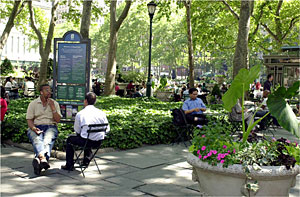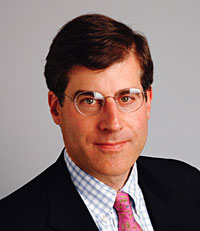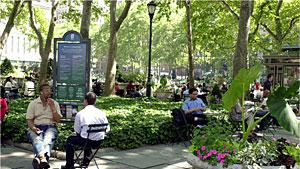Parks look to partnerships and sponsorships for life-saving revenue

As New York State and other communities around the U.S. announce park closings due to tight budgets, innovators like Dan Biederman are developing partnerships that boost revenue and help parks find private financing for much of their operations.
Biederman, president of the New York City-based Bryant Park Corp., 34th Street Partnership and Chelsea Improvement Co., has developed new revenue streams for Big Apple parks, including:
- At Bryant Park, in the heart of midtown Manhattan, an $8 million annual operating and construction budget is drawn from the rent paid by Bryant Park Grill and Café and food kiosks (when one buys a drink at the café, 16.5 percent of the bill goes to park lawns and flowers). Other revenue sources include sponsorships by large national companies, event revenues and a business improvement district that includes all the park’s abutting buildings.
- Central Park has been equally resourceful. Its $25 million annual operating budget comes principally from private fundraising from neighboring residents and public-spirited corporations and foundations, with the city kicking in just $5 million each year.
- Gotham’s Herald and Greeley Square parks, on 34th St., operate on almost $1 million of revenues from events, concessions and ad panels placed on the street-side of public toilet facilities.
Biederman’s consulting firm, New York City-based Biederman Redevelopment Ventures, has managed development projects in parks, plazas, public spaces and neighborhoods in 18 states.
Some of the sponsorship vehicles Biederman has used in his projects include gardens, an ice rink, a market, kiosks, and an outdoor reading room/library in the park. Biederman’s group designs appropriate park and public place programs, and then seeks potential sponsors.
Govpro.com asked for Biederman’s take on parks development in 2010-2011.
Govpro.com: What advice do you have for parks directors/city officials on how to find sponsorships and other sources of private funding and revenue?

Dan Biederman: My advice is that they should look for parks programs that their communities could otherwise not afford. The programs could include projects that are very positive for their park users, or something that any corporation would be proud to say that they have made possible.
Next, the officials should approach someone who knows how to find these companies in their region, or national firms in some cases, as we’ve done, who would be happy to sponsor the projects and activities. I might mention that there are a lot of dollars now sloshing around in the sponsorship and event field.
Govpro.com: Are concert fees one potential source of revenue for parks?
DB: Yes. In large cities, generally, you can price concerts at levels that exceed the cost of the program, because there’s a market price and people understand that. In smaller cities, usually there’s some local executive who represents a larger company and wants to make an impact, and they view this as part marketing and part charitable effort.
Govpro.com: Do you see 2011 as a year when more park partnerships will be developed with all the budget challenges facing local governments?
DB: Yes I do, and the only problem is the economy — these things are very sensitive to the economy. They shut off the spigot (private sector funds) if the economy looks bad, and my sponsorship sales guy is a little worried that they are shutting it down now. So, it’ll be a little tougher than it would be otherwise, because not only will governments be short of funds, but private sector firms will be short on funds than they would have had the U.S. economy been fully recovered. Private sector funders are highly responsive to the economy, and they’ll still do a lot of marketing in 2011, but things will be a bit harder if the economy doesn’t recover strongly.




















